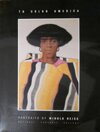
Jeffrey C. Stewart
Author of 1001 Things Everyone Should Know About African American History
About the Author
Jeffrey C. Stewart is Professor of Black Studies at the University of California, Santa Barbara. He is the author of Paul Robeson: Artist and Citizen and 1001 Things Everyone Should Know About African American History.
Works by Jeffrey C. Stewart
Associated Works
Tagged
Common Knowledge
- Birthdate
- 1950
- Gender
- male
- Nationality
- USA
- Birthplace
- Chicago, Illinois, USA
Members
Reviews
Awards
You May Also Like
Associated Authors
Statistics
- Works
- 6
- Also by
- 2
- Members
- 406
- Popularity
- #59,889
- Rating
- 3.9
- Reviews
- 6
- ISBNs
- 18

























section shelf from top